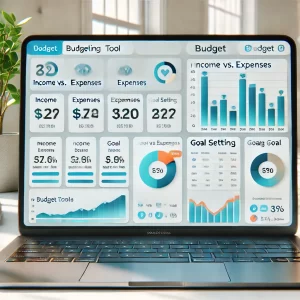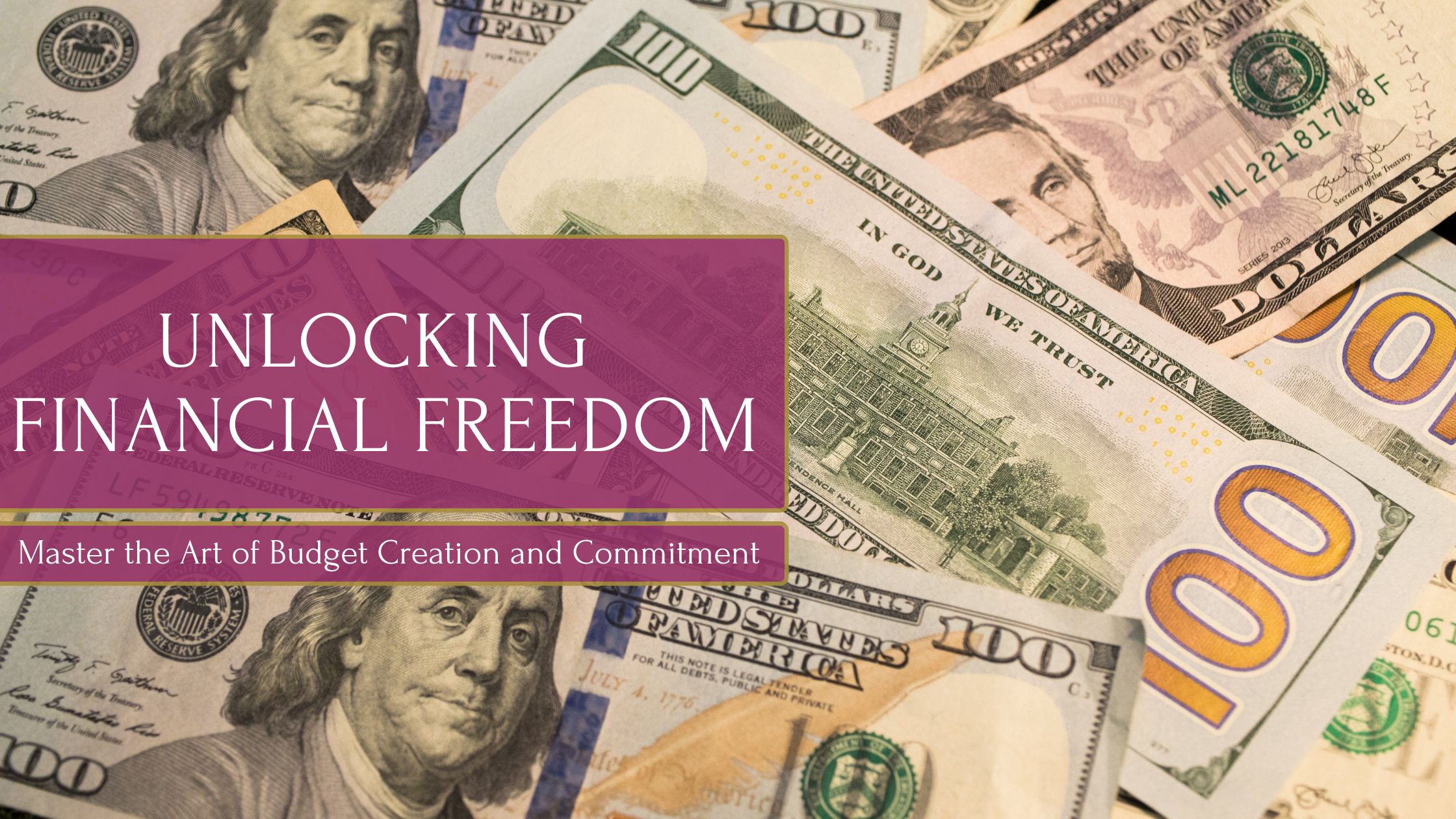Imagine a world where financial stress doesn’t dictate your every decision, where the weight of expenses doesn’t feel like an ever-present storm cloud hovering above. This isn’t some unattainable utopia; it’s a reality within your reach, and it all begins with mastering one transformative skill: budget creation and commitment. In this journey towards unlocking financial freedom, understanding and efficiently managing your finances is not just important—it’s life-changing. With the right approach, creating a budget becomes more than just number-crunching; it turns into a powerful tool that paves the way to peace of mind and financial empowerment.
Embarking on this path requires more than just discipline; it demands a strategic mindset and a willingness to transform habits. It’s about learning practical tips that not only help in crafting a realistic budget but also in sticking to it, even when life’s unpredictability tries to veer you off course. By adopting these strategies, you’re not just tracking dollars and cents; you’re consciously designing a lifestyle that reflects your true priorities and aspirations. These actionable insights will guide you in building a solid financial foundation, ensuring that your dreams are no longer just dreams, but achievable realities. Welcome to the art of budgeting—a journey towards financial independence that starts today.

Understanding the Importance of Budget Creation
Before diving into the nitty-gritty of budget creation, it’s crucial to understand why it holds such significance in our lives. A budget serves as a roadmap for your financial journey, providing clarity and direction. It helps you gain control over your money, allowing you to make informed decisions about spending and saving. By creating a budget, you can track your income and expenses, identify areas where you can cut back or save, and ultimately work towards achieving your financial goals.
Without a planning, it’s easy to lose track of where your money is going. You may find yourself living paycheck to paycheck or accumulating debt without even realizing it. However, with a well-crafted budget in place, you can break free from this cycle and take charge of your financial future.
Setting Clear Financial Goals
The first step in mastering the art of budget creation is setting clear financial goals. These goals act as guideposts along your journey towards financial freedom. Whether it’s paying off debt, saving for a down payment on a house, or planning for retirement, having specific objectives will help shape your budgeting strategy.
 When setting financial goals, make sure they are SMART: Specific, Measurable, Achievable, Relevant, and Time-bound. For example, instead of saying “I want to save money,” set a goal like “I want to save $10,000 for a down payment on a house within the next two years.” This gives you something concrete to work towards and allows you to track your progress along the way.
When setting financial goals, make sure they are SMART: Specific, Measurable, Achievable, Relevant, and Time-bound. For example, instead of saying “I want to save money,” set a goal like “I want to save $10,000 for a down payment on a house within the next two years.” This gives you something concrete to work towards and allows you to track your progress along the way.
Assessing Your Income and Expenses
To create an effective plan that works for you, it’s essential to have a clear understanding of your income and expenses. Start by gathering all relevant financial documents such as pay stubs, bank statements, and bills. This will give you a comprehensive picture of your financial situation.
Next, categorize your expenses into fixed and variable categories. Fixed expenses include things like rent or mortgage payments, utilities, and insurance premiums. Variable expenses are more flexible and can include items like groceries, entertainment, and dining out.
Once you have a clear breakdown of your income and expenses, you can determine how much money is coming in versus how much is going out. This will help you identify areas where you can cut back or reallocate funds to align with your financial goals.
Creating a Realistic Plan
Now that you have a clear understanding of your financial situation, it’s time to create a realistic budget plan. Start by allocating a portion of your income towards essential expenses such as housing, transportation, and utilities. Then set aside money for savings and debt repayment.
When creating your budget plan, be sure to leave room for discretionary spending. It’s important to enjoy life and treat yourself occasionally without feeling guilty. By including discretionary spending in your budget, you’re more likely to stick to it in the long run.
Remember that creating a budget is not about deprivation; it’s about making intentional choices with your money. Be realistic about what you can afford while still working towards your financial goals.
Implementing Effective Budgeting Tools
In today’s digital age, there are numerous budgeting tools available that can simplify the process of tracking your finances. From mobile apps to online spreadsheets, these tools offer features like expense tracking, goal setting, and automatic categorization of transactions.
Choose a budgeting tool that aligns with your preferences and needs. Some popular options include Mint, YNAB (You Need a Budget), and Empower. These tools can help you stay organized, monitor your progress, and make adjustments to your budget as needed.

Strategies for Sticking to Your Budget
Creating a budget is one thing, but sticking to it is another challenge altogether. Here are some strategies to help you stay committed:
1. Track your expenses: Regularly review your spending to ensure you’re staying within the limits set by your budget.
2. Automate savings: Set up automatic transfers from your checking account to a savings account or retirement fund. This way, you’re less likely to spend the money before saving it.
3. Find accountability: Share your financial goals and budgeting journey with a trusted friend or family member who can provide support and hold you accountable.
4. Celebrate milestones: Reward yourself when you achieve financial milestones or reach specific goals outlined in your budget plan.
Adjusting Your Budget as Needed
A budget is not set in stone; it’s a flexible tool that should evolve with your changing circumstances. Life is full of unexpected events, both positive and negative, that may require adjustments to your budget.
If you receive a raise at work or experience an increase in expenses, take the time to reassess and make necessary changes to ensure your budget remains realistic and effective.
Building an Emergency Fund for Financial Security
An emergency fund is an essential component of any well-rounded budget plan. It acts as a safety net during unforeseen circumstances such as job loss, medical emergencies, or major home repairs.
To build an emergency fund, start by setting aside a small portion of each paycheck. Aim to save three to six months’ worth of living expenses. This will provide you with peace of mind and financial security in times of crisis.
Investing in Your Future: Savings and Retirement Planning
While budgeting helps you manage your day-to-day finances, it’s equally important to plan for the future. Allocate a portion of your income towards savings and retirement accounts to ensure long-term financial stability.
Consider opening a high-yield savings account or investing in low-cost index funds or retirement plans such as a 401(k) or IRA. The earlier you start saving for retirement, the more time your money has to grow through compound interest.
In conclusion, mastering the art of budget creation and commitment is the key to unlocking financial freedom. By understanding the importance of budgeting, setting clear financial goals, assessing your income and expenses, creating a realistic budget plan, implementing effective budgeting tools, sticking to your budget with strategies like tracking expenses and automating savings, adjusting your budget as needed, building an emergency fund, and investing in your future through savings and retirement planning—you can take control of your finances and design a life that aligns with your aspirations.
Remember that creating a budget is not about restriction; it’s about empowerment. It’s about making intentional choices with your money that bring you closer to achieving your dreams. So, embrace this journey towards financial freedom today and witness the transformative power of mastering the art of budgeting.




